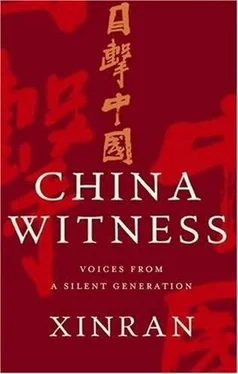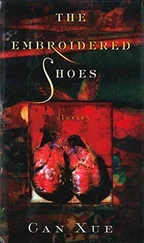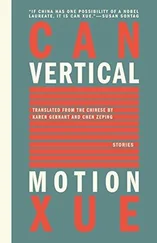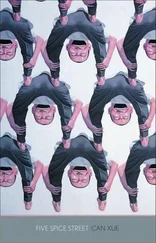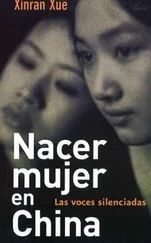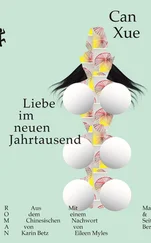The third thing that I discovered concerned the death of the Double-Gun Woman in 1960.
Chen Lianshi died in 1960 of anger and regret, after the failure of the last uprising – involving some thousand people – she organised and led against Nationalist Forces, on Huaying Mountain in Sichuan. In the waves of political campaigns that started in the 1950s, the leaders of the Huaying Mountain guerrillas were condemned by China's Communist rulers as "bandits", "traitors" and "counter-revolutionaries", their failure blamed on treachery. As a result of these groundless charges, not long after 1949 the Double-Gun Woman and her comrades-in-arms were forced out of the Party. The woman who had sacrificed everything – for the Party – including her husband and daughter was denounced as a traitor.
Some said that she died of sorrow and resentment because her Party membership was never returned to her. Party membership was not only a source of personal validation and identity, it was also a promise she had made to her husband, who had also devoted his life to the Party and wished that she should remain faithful to it until her final breath. And yet the Party had rejected her. Some said that she died of despair, because the cause to which she had devoted herself – the Party that was supposed to be for the People – turned its back on hundreds of thousands of innocent victims of the Huaying Mountain Uprising. Why had it abandoned them? The damning official verdict on the uprising turned the children of the "treacherous" guerrillas into orphans and beggars. And yet the Double-Gun Woman silently left this world without pronouncing final judgement on the Party that had dominated her life.
In July 1960, Chen Lianshi lay alone in hospital, dying of cancer, her relatives – punished for her own political disgrace – scattered far and wide. A woman who had denounced her came to visit – perhaps because she had been tormented at night by the ghostly cries of those who had been persecuted to death, or perhaps because she had seen for herself children who had lost their parents in political campaigns picking food out of rubbish, or perhaps because the grief and anger of the Double-Gun Woman had woken her conscience. No one really knew why the woman secretly approached the Double-Gun Woman's bed to beg her forgiveness. She took the skeletal hand of the Double-Gun Woman in both her hands. On the Double-Gun Woman's wrist was the dark green jade bracelet that, all those years before, her husband had given her. Face to face with the revolutionary heroine that she had denounced, the woman wept. In the ten years that had passed since the political trauma to which she had subjected Chen Lianshi – organising a small group charged exclusively with collecting a dossier of materials against her and orchestrating a succession of progressively more frenzied denunciation meetings – a great many other campaigns had taken place. By 1960, the woman herself had suffered from political violence and had long since regretted her actions. But there is no medicine to heal the pain of regret.
By this point too weak to speak, the Double-Gun Woman placed the woman's hand on her bracelet, indicated that she should remove it, then tremblingly placed it on the woman's own wrist. She smiled, a single tear rolling down her cheek, then closed her eyes again. The woman could sense the gesture was a kind of pardon, and on learning later that the family were looking for the bracelet, she was even more moved by the Double-Gun Woman's generosity of spirit.
Chen Lianshi's grandchildren were shaken when they found out. They had thought they'd understood their grandmother at the end; they thought that she had died angry and resentful. Instead, she had died forgiving her bitter enemy. By placing this family heirloom on her enemy's wrist, Chen Lianshi had embraced her as a member of her own family.
I cried every time I heard this story. In the two decades I have worked as a journalist, I've frequently been moved by the ease with which China's old people forgive. Some people cite this generosity as proof of their numbness and lack of spirit. I can't agree. You can see the sorrow they still feel: in the tears they shed as they tell you their stories; in the twitching of their hands as they unearth painful memories. But, somehow, many of them manage to forgive the terrible things that history has done to them, the callous, unjust treatment they have received at the hands of the Party – as easily as they forgive the mistakes of children. But while we should commend their refusal to pass the bitterness of their tragedies down through the generations, we still need to commemorate their suffering.
On 3 August 2006, I arrived in Chengdu, intending to interview the surviving family of the Double-Gun Woman: her son-in-law Lin and her grandchildren. This was the fifth trip I'd made to Chengdu. I still remembered very clearly how poor and run-down it had looked on my first visit at the end of the 1970s, how primitive and backward. In the 1980s, incomes in Chengdu seemed on average several times lower than in other Chinese cities. But the Chengdu I now saw was a refreshing contrast: clean, well ordered, no longer cluttered with ramshackle old hotpot and dumpling stalls – clearly a place on the up.
My awareness of the changes that time had brought intensified during the time I spent with the Lin family, especially as I flicked through albums of photos taken between the 1950s and 1980s. I could sense a deep sadness in the expressions of the people I saw pictured, even in the children. The 89-year-old Lin, in particular, seemed to be carrying a heavy weight inside him. Even though he would laugh and joke when talking about China and about his life, you could sense the reserve in him, typical of many Chinese people: an unwillingness to discuss personal things or political views. It was, it seemed, only in his poetry that Lin truly revealed himself. He seemed to have shut himself firmly away in a box, as so many Chinese have done and continue to do. I wanted to find out what lay inside.
Because of the work Lin had done as a young man helping survivors of the Huaying Mountain Uprising, and because he was married to the daughter of the "traitor" Chen Lianshi, the government branded him a dissident – "a Rightist" – when he was barely thirty. Having joined and offered outstanding service to the Communist Party before he was twenty, he was hit hard by the label of counter-revolutionary. "Chairman Mao," he had sobbed to himself, "why don't you come and save me?" Accused and reaccused throughout every political campaign of the Maoist period – the Four Clean-Ups, the Anti-Rightist movement and the Cultural Revolution – he ended up spending the best part of thirty years in and out of prison, during which time he lost his mother-in-law and great mentor, the Double-Gun Woman, and his wife, her daughter. His six children were forced to survive alone, wandering the streets like beggars, scorned and humiliated by society. But, as his acerbically satirical poems reveal, his spirit survived and was even strengthened by his tragic experiences.
After the Cultural Revolution, he wrote his autobiography at the age of seventy with the help of his daughter, Lin Xue. Reading it, I was once more reminded of the generosity and vitality of the Chinese. I saw in it an innocent, though doggedly determined child refusing to accept defeat, even at the hands of his own father; a rebellious teenager, unhappy at his father's choice of second wife; a young man falling in love, at the same time as his father, with the legendary Double-Gun Woman, though this was no blind, youthful hero-worship; a mature adult constantly searching for the truth, reflecting on the best means of saving China, adoring his wife, and weeping over his children's suffering. Perhaps the most remarkable thing of all was that, even after decades of political persecution, he remained a free man, capable of independent thought and perfectly at ease with himself because – like his legendary mother-in-law – he had remained throughout all his ordeals a man of honour.
Читать дальше
